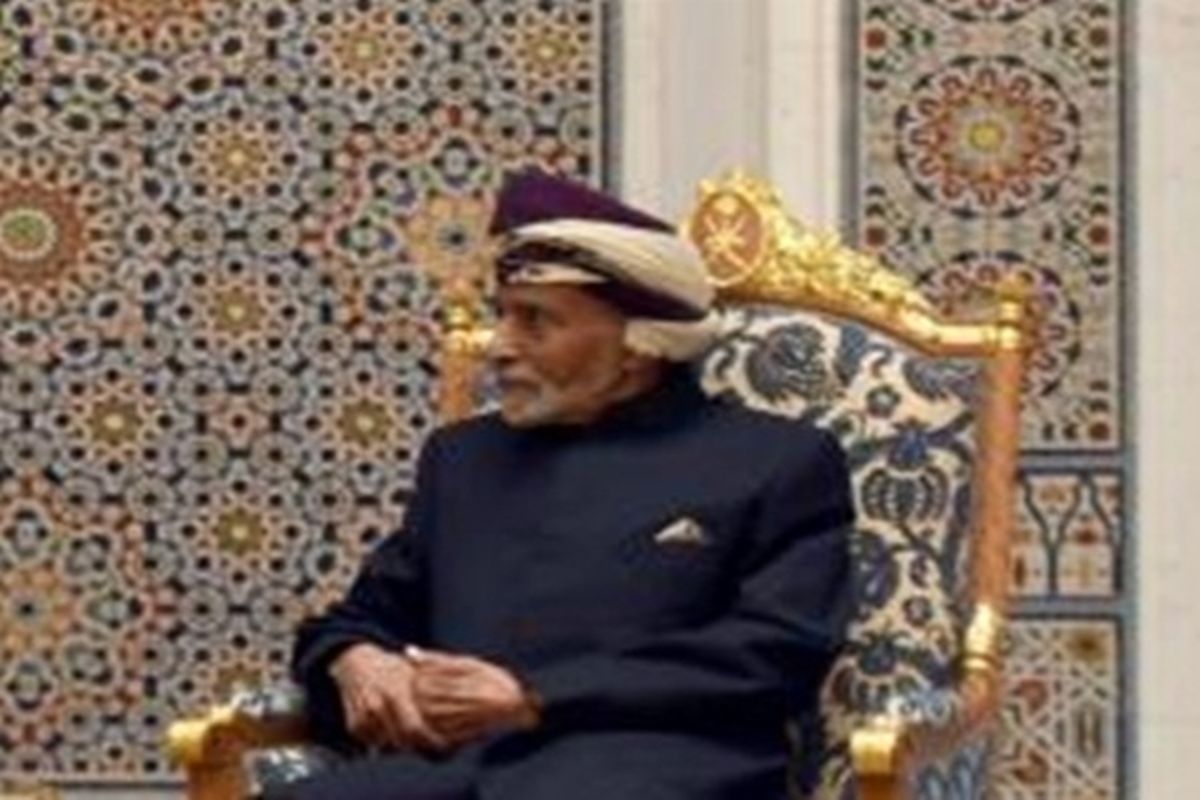Church Crisis
The resignation of the Archbishop of Canterbury, Justin Welby, over historic abuse allegations is a moment of reckoning for the Church of England.
Oman has long been to the Middle East what neutral Switzerland is to global diplomacy, balancing ties between two vast neighbours locked in a regional struggle, Saudi Arabia to the west and Iran to the north.

Sultan Qaboos bin Said Al Said (Photo: IANS)
Sultan Qaboos bin Said al Said, the longest-serving leader in the Gulf region died at the age of 79 in the early hours of Saturday.
Three days of official mourning have been declared with flags flown at half-mast for 40 days, for the Western-backed Qaboos, who had ruled since taking over in a bloodless coup in 1970 with the help of former colonial power Britain.
According to State news agency ONA, it did not give a cause of death, but Qaboos had been unwell for years and spent a week in Belgium undergoing medical treatment in early December.
Advertisement
His death comes at a time of heightened tension in the Middle East as Washington and Tehran have attacked one another on Iraqi territory.
The Omani Sultanate had called for calm, in line with Bin Said’s policy of neutrality.
Under the Sultan, Muscat even mediated between conflicting countries in the volatile neighbourhood and sought to end the conflict in Yemen. Oman was the first Persian Gulf state to establish low-level ties with Israel.
Qaboos was born in the southern city of Salalah, the then-capital of the kingdom, and was the only son of Said bin Taimur and Princess Mazoon al-Mashani. He overthrew his father in 1970 in a bloodless coup with the help of the British.
Former US President George W. Bush said in a statement that Qaboos had been a stable force in the Middle East. Dubai ruler Sheikh Mohammed bin Rashid al-Maktoum in a Twitter post described him as the sultan of honour, affection and wisdom.
Indian Prime Minister Narender Modi also expressed his condolence to the demise of Qaboos, saying “Sultan Qaboos was a true friend of India and provided strong leadership for developing a vibrant strategic partnership between India and Oman”.
Taking to Twitter Modi said, “I am deeply saddened to learn about the passing away of His Majesty Sultan Qaboos bin Said al Said. He was a visionary leader and statesman who transformed Oman into a modern and prosperous nation. He was a beacon of peace for our region and the world”.
Sultan Qaboos was a true friend of India and provided strong leadership for developing a vibrant strategic partnership between India and Oman. I will always cherish the warmth and affection I received from him. May his soul rest in peace.
— Narendra Modi (@narendramodi) January 11, 2020
Oman has long been to the Middle East what neutral Switzerland is to global diplomacy, balancing ties between two vast neighbours locked in a regional struggle, Saudi Arabia to the west and Iran to the north.
However, his father sent him to Suffolk in England for education. There, he developed an interest in photography and classical music, which later led him to set up Oman’s first opera and its choir.
After ascending the throne in 1970, and heavily influenced by the West and Zanzibar – his main country of reference – he sought to turn around the fortunes of Oman and its people.
Qaboos brought into his administration leaders opposed to his father’s government, including current Omani foreign minister Yusuf bin Alawi bin Abdullah, now one of the longest-serving foreign ministers in the world.
Qaboos transformed Oman into an active player in regional and international politics. Under his direction, Oman joined the United Nations and the Arab League, and he played a role in the formation of the Gulf Cooperation Council (GCC) in 1981.
He appointed a female ambassador to the Netherlands in 1999, the first time a woman represented a Gulf country.
(With inputs from agency)
Advertisement